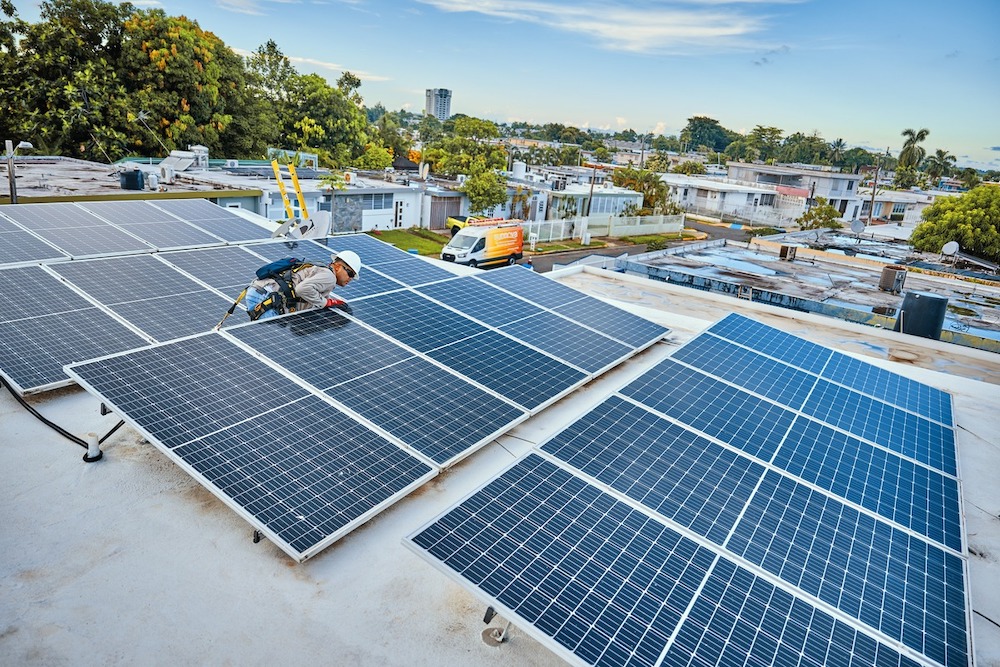
- Details
- By Chez Oxendine
- Energy | Environment
A five-day power outage last winter on Indian Island — a part of the Penobscot Nation reservation in northern Maine — spurred the tribe to accelerate its microgrid development plans.
The five-day outage in December 2023, followed by another multi-day outage in early January 2024, forced the tribe to activate emergency warming centers, provide food assistance, and supply generators for citizens with medical equipment needs, according to tribal notices.
To build greater energy independence, the tribe will begin construction on a $4.5 million project to install solar panels on commercial buildings across Indian Island, according to Economic and Community Development Director Michael Burgess. The project also includes a planned 1-megawatt of battery storage and an interconnection that will allow the Penobscot Nation to sell power to local utility provider Versant.
The project is expected to save the tribe roughly $500,000 a year between sales of excess power and reduced utility costs, Burgess said.
“It’s going to have a huge impact for us,” Burgess told Tribal Business News. “Energy sovereignty comes through creating your own microgrids like this — and for us, it’s very important to build that out.”
Battery storage will be conducted in two phases, according to Burgess. The first phase is a ½-megawatt lithium ion storage solution from Houston-based renewable energy developer Sunnova, targeting the tribe’s community and commerce facilities. The storage system will cost roughly $1.37 million total, with $689,000 funded by Maine’s Grid Resilience Program.
The system will store excess solar power - estimated at 549,678 kilowatt-hours annually - and help manage power distribution through the microgrid to maintain electrical service during outages, according to Sunnova. The company will deploy the storage as a service to the tribe, with a buyout option, requiring no upfront costs from the tribe.
The battery storage system will work with the island's existing solar panels to maintain power during outages, Sunnova Vice President of Microgrids Adam Miller said.
"It allows customers to share with one another," Miller said, describing how the microgrid will connect different buildings on the island.
Penobscot Chief Kirk E. Francis said the microgrid project would continue shoring up Indian Island’s defenses against extreme weather events and other disasters.
“Sunnova’s microgrid will provide a critical source of dependable power when the grid goes down, particularly for our Penobscot Community and Commercial Centers, helping us maintain essential health and administrative services,” Francis said in a statement. “Our community stands to benefit greatly from the sustainable electricity generated by the sun – and we will enjoy more peace of mind in the face of future grid outages.”
